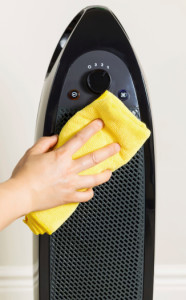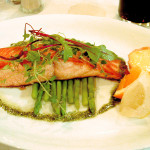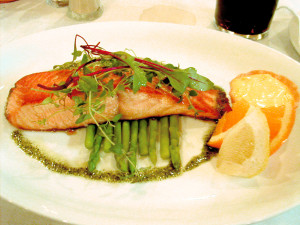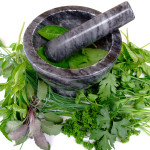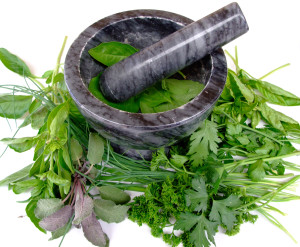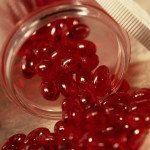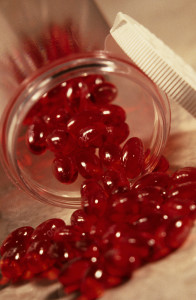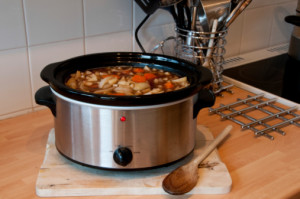 Cooking an anti inflammatory diet recipe that tastes good is actually very easy. Making these recipes in a crockpot or slow cooker makes it even more simple to do, busy or not in the rest of your daily life. When you slip in anti inflammatory foods such as fresh ginger and garlic, you go a long way toward promoting a healthier inflammatory response. Remember to choose better forms of the ingredients, such as organic chicken, peanut butter, and other low-sugar and pesticide-free ingredients, whenever possible.
Cooking an anti inflammatory diet recipe that tastes good is actually very easy. Making these recipes in a crockpot or slow cooker makes it even more simple to do, busy or not in the rest of your daily life. When you slip in anti inflammatory foods such as fresh ginger and garlic, you go a long way toward promoting a healthier inflammatory response. Remember to choose better forms of the ingredients, such as organic chicken, peanut butter, and other low-sugar and pesticide-free ingredients, whenever possible.
Take a look at this excellent snack or meal…
Ingredients
3 lbs chicken wings (halves, preferably organic chicken or antibiotic- and hormone-free chicken)
1/2 cup good salsa
2 Tbsp natural peanut butter (sugar-free organic)
1 Tbsp fresh lime juice
2 tsp soy sauce
2 tsp grated fresh ginger root
Dipping sauce:
1/4 cup natural peanut butter (sugar-free organic)
3 Tbsp soy sauce
3 Tbsp water
1 garlic clove, grated
Directions
Put chicken wings in your crockpot or slow cooker.
In a bowl, whisk together the next 5 ingredients, then pour over the chicken wings in the crockpot, stirring to coat chicken evenly.
Set crockpot to LOW, cover, and cook for 6 hours.
To prepare dipping sauce, put remaining ingredients in saucepan over low heat, whisk to combine. Heat, whisking, over low heat until mixture gets hot and bubbly and smooth.
Remove sauce from heat and let cool slightly before serving. The sauce will thicken a little as it cools and you will need to stir it before serving as it will separate as it sits.
Use tongs to remove chicken wings from crockpot when they are done cooking, leaving what’s left of the cooking sauce behind.
Serve wings with dipping sauce you made in saucepan.
You can round this dinner out with some shredded cabbage stir-fried until just crispy tender and served alongside with some of the dipping sauce drizzled over.
Yields about 24 to 36 appetizers or will feed 4 to 6 a full meal.
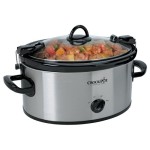 Need a great slow cooker to make this delicious recipe? Check out the Crock-Pot Stainless Steel Cook N Carry Portable Slow Cooker here. You can make enough to serve 7 or more people.
Need a great slow cooker to make this delicious recipe? Check out the Crock-Pot Stainless Steel Cook N Carry Portable Slow Cooker here. You can make enough to serve 7 or more people.
If you are cooking this dish as your special pot luck contribution at a friend’s house, you can make the meal and transport it in the same container! With removable stoneware, your serving dish is built right in. Perfect for the busy person who still wants that healthy home cooked meal with a lot less clean up…at home or at a pot luck party.
Wouldn’t you love to put this meal into your personal food diary? Great healthy choice to support a healthier inflammatory response.


